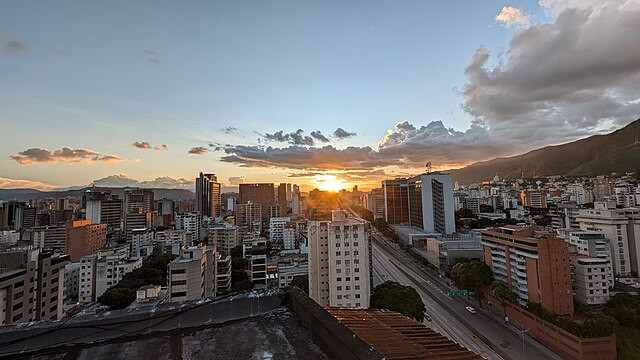Venezuela's capital Caracas and several other states experienced a massive power outage early Friday, with the government attributing the blackout to alleged sabotage. The outage, which began around 4:50 a.m. local time, impacted all 24 states, disrupting daily life and critical operations across the country.
Interior Minister Diosdado Cabello was quick to blame the opposition for the blackout, describing it as a "terrorist attack" on Venezuela's electrical system. In a statement broadcast on state television, Cabello said, "The entire national government has been activated to overcome this new aggression." He added that the outage affected key infrastructure, including the nation's largest oil terminal, Jose, and various state-run services.
The blackout, which caused significant disruptions including halted metro services and non-operational businesses, was particularly severe in Caracas and the states of Táchira, Mérida, Barinas, Zulia, Falcón, Nueva Esparta, and La Guaira. Communications Minister Freddy Nanez echoed Cabello's sentiments, asserting that the outage was part of a "constant strategy of the opposition" aimed at undermining the Venezuelan government.
Power restoration efforts are underway, with authorities implementing "security protocols" as they work to bring the grid back online. According to Nanez, power will begin returning in phases, starting with the capital. "Nobody will take away our peace and tranquility of the Venezuelan people," Nanez wrote in a message on Telegram, as the government continues to manage the crisis.
This outage marks a significant escalation in Venezuela's ongoing energy issues, which have plagued the country for years. The nation's power grid, heavily reliant on the aging Guri Dam hydroelectric plant, has faced repeated failures due to inadequate maintenance and infrastructure challenges. Energy experts have previously linked similar blackouts to brush fires damaging transmission lines and systemic neglect, rather than deliberate sabotage.
The timing of the blackout is also noteworthy, coinciding with heightened political tensions following the disputed July 28 presidential election. President Nicolas Maduro, whose victory has been contested by opposition figures, has frequently accused his political rivals of orchestrating attacks on critical infrastructure. The recent election, which saw accusations of vote-rigging and irregularities, has intensified scrutiny on the government's handling of the crisis.
In the wake of the outage, Venezuelans have reported various disruptions. Bakery worker Alejandro Rondon expressed concern about his perishable goods, noting that "the ovens aren't working, and my fear is for the yeast, which needs to be cold." Additionally, Caracas's metro services were halted, leading to the deployment of over 250 buses to replace the public transportation system temporarily.
The government's response to the outage has included a series of security and political measures. Authorities have increased scrutiny and arrests of opposition figures, including former candidate Edmundo Gonzalez and opposition leader Maria Corina Machado, who are under investigation for alleged incitement. This crackdown comes as part of a broader effort to suppress dissent and reinforce Maduro's grip on power amid mounting domestic and international pressure.
Venezuela's energy crises are not new; the country experienced three major blackouts in 2019, which the government similarly attributed to sabotage. However, many analysts argue that these outages are symptomatic of deeper systemic issues within Venezuela's energy infrastructure and governance.




